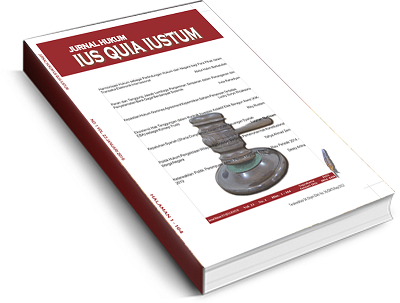Main Article Content
Abstract
The issues taken in this research include first, the base of policy justification for the criminal sanction of terrorism; second, the formulation of the accurate criminal sanction of terrorism in the draft of positive law in Indonesia; Third, the forms of criminal sanction that can be offered as a form of reconstruction of criminalization for the terrorists. This is a juridical-normative research in which the result of the research concluded that: first, the justification in the implementation of sanction for criminal act of terrorism is based upon the philosophical sanction implementation supported by the positivism based upon the determinism and philosophically in line with the values as stated in Pancasila and the values of justice as a purpose of the mono-dualistic teachings in criminal law. Theoretically, the implementation of criminal sanction is in line with a number of legal theories such as the modern/combination criminalization theory (Vereningings Theorien), Restorative Justice Theory and double Track System theory. Second, regarding the following regulation revision of the terrorism, there is a need of limitation and conditions of the implementation of criminal sanctions in terms of crime and criminal. Third, the form of criminal sanctions can be done in two ways: The normative form through the Brainwashing program and deradicalization program. Whilst, the social form is done by the way of: correlational separation and the establishment of special institution for the implementation of criminal sanction that is an institution under the Attorney General as the executor of court verdict.
Keywords
Article Details
Authors who publish with this journal agree to the following terms:
a. Authors retain copyright and grant the journal right of first publication with the work simultaneously licensed under a Creative Commons Attribution License that allows others to share the work with an acknowledgement of the work's authorship and initial publication in this journal.
b. Authors are able to enter into separate, additional contractual arrangements for the non-exclusive distribution of the journal's published version of the work (e.g., post it to an institutional repository or publish it in a book), with an acknowledgement of its initial publication in this journal.




